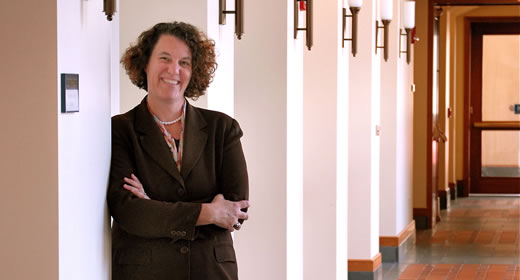
The threat of crippling debt creates hesitancy when students decide whether to borrow student loans. But recent research reveals that students who took out more student loans were less likely to default, had higher academic performance, and more successful careers post-college. “This was most likely because the loans allowed students to earn additional college credits, which led to more stable careers and finances,” explains Susan Dynarski, professor at the Ford School, explains this phenomena in a New York Times column “Taking Out a Student Loan Is Better Than Dropping Out” on September 6.
Dynarski draws on two recent research articles to further her point. In one study she cites, conducted at a large community college, admitted students were sent different types of acceptance letters: one group received a letter with specific information about student loan awards (“nudges”) included and one group without. “The students who borrowed because of the nudges earned more college credits, got better grades and were more likely to transfer to four-year colleges where they could earn bachelor’s degrees,” writes Dynarski.
Another study was conducted at a different community college where student loan counseling was conducted via text message, encouraging minimal borrowing to promote self-sufficiency. “The extra counseling reduced borrowing. But it also reduced learning: Students who borrowed less earned worse grades and fewer credits. And most surprising, those who borrowed less were more likely to default on their student loans over the next three years,” Dynarski said.
Dynarski clarifies that student loans are not the only way to guarantee success, explaining, “Let’s be clear. This body of research doesn’t show that loans are the best way to fund college students. It just shows that if students don’t get enough money to pay for college, they can’t succeed.” She concludes “Every college graduate would be better off without student debt. But they would not be better off without their college degrees, which loans make possible for millions of people.”
Read the full piece here.
Susan Dynarski is a professor of public policy, education and economics at the University of Michigan, where she holds appointments at the Gerald R. Ford School of Public Policy, School of Education, Department of Economics and Institute for Social Research and serves as co-director of the Education Policy Initiative.